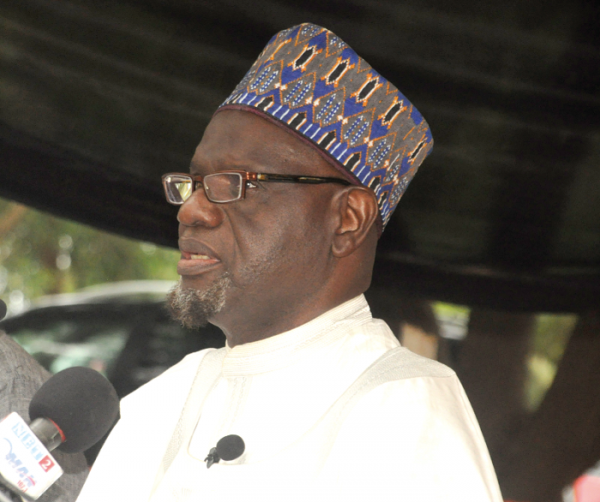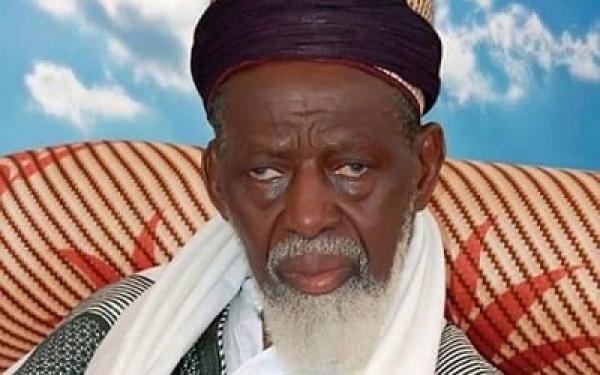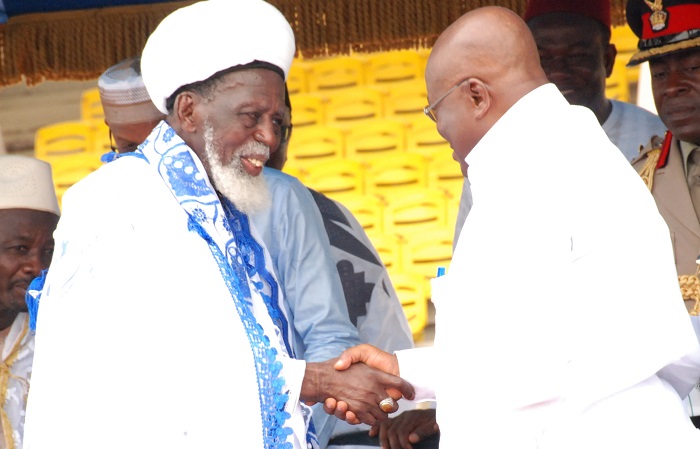Muslims should lead in nation building – Maulvi Mohammed
- Posted on
- Comment
 Ghanaian Muslims need to eschew antiquated divisive tendencies and position themselves to play a leading role in the fight to transform the country, the Ameer and Missionary-in-charge of the Ahmadiya Muslim Mission has said.
Ghanaian Muslims need to eschew antiquated divisive tendencies and position themselves to play a leading role in the fight to transform the country, the Ameer and Missionary-in-charge of the Ahmadiya Muslim Mission has said.
According to Alhaji Maulvi Mohammed Bin Salih, each Ghanaian Muslim must see him or herself as a reformer of the Ghanaian polity.
Delivering a sermon at the Eid-Ul-Fitr prayers at Ashongman in Accra, the Ahmadi leader said as individuals and a nation, there was a lot to learn from fasting when it came to the values of responsible citizenship, tolerance, civility and mutual respect for one another.
Those values, he said in addition to others, were essential ingredients that engendered peace, development and progress of a nation.
“Let Eid, therefore, be a reminder to us as a nation, and particularly, Muslims, to cling firmly to these lofty ideals, even after Ramadan.
This way, we can achieve good neighbourliness, mutual trust and respect and the realisation that we all have, as rightful citizens, a stake in our country’s future,” he added.
Eid
The Eid celebrations mark an end to the month-long Ramadan fasting. It means the “festival of breaking the fast”.
Ramadan is a month-long fast which is observed during the month Muslims believe their Holy Book, the Quran, was revealed to the Prophet Mohammed.
During this time, Muslims refrain from eating and drinking from sunrise to sunset. Ramadan is one of the five pillars of Islam, requiring prayer five times a day and generally encouraging a more reflective behaviour.
Lawlessness
Not mincing words, Alhaji Bin Salih stated that prior to the fasting, Ghana had earned the accolade of lawless people with increasing criminal activities.
“You will agree with me that we do not deserve such a negative accolade. We have ourselves placed our country at the crossroads.
“The image of our country is almost bruised and sullied by courtesy of the negative acts of lawlessness, as well as the inaction of all of us, particularly those in authority,” he stated.
Enforce the law
Alhaji Bin Salih challenged the powers that be to let the law work, saying: “Our negative attitude in the immediate past in the implementation of the law must be checked and not given the slightest pace to fester.”
He, therefore, urged the public to be wary of their utterances and even body language in order to avert conflicts.
He called on the leadership of the country to lead a life of humility, honesty, patriotism and govern with the fear of Allah and the media to remain truly critical and diligently honest in their reportage, while at the same time infusing in the minds of the people, the feelings of virtue.
Fun after prayers
Right after the prayers, tables were laid and mats spread for a picnic.
“We are not going home; the fun is here. There will be a lot to eat, drink and share.
There is a lot of decency in the celebration here,” Abdul Karim told the Daily Graphic while pulling out an ice chest filled with food and drinks.
By convention, during Eid, Muslims gather in large open spaces or mosques for special prayers, called Salat al-Eid, usually followed by a small breakfast, their first daytime meal in a month.
Gifts are usually exchanged and alms-giving is also a common practice.
Another custom involves donning new clothes for the new day, which marks a spiritual renewal.
Food is an important part of Eid-Ul-Fitr, as feasting takes the place of fasting.
-Graphic










 (Selorm) |
(Selorm) |  (Nana Kwesi)
(Nana Kwesi)